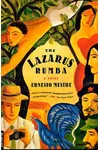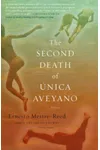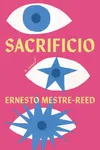Picture a Cuban storyteller weaving tales of identity, rebellion, and longing through poetic prose—meet Ernesto Mestre-Reed! Born in Guantánamo in 1964, this celebrated author, translator, and professor captures the soul of Cuba and its diaspora with mesmerizing narratives. His novels, rich with vivid characters and complex themes, have earned him Guggenheim and MacDowell fellowships, making him a literary gem worth discovering.
From Havana’s gritty streets to Miami’s exile communities, Mestre-Reed’s work dives into the heart of Cuban experience, blending surrealism, queer desire, and political defiance. Whether you’re new to his books or a longtime fan, his stories promise to pull you into a world where history and imagination collide.
The Making of Ernesto Mestre-Reed
Born in Guantánamo, Cuba, Ernesto Mestre-Reed’s early life was shaped by upheaval. His family fled to Madrid, Spain, in 1972, then settled in Miami later that year, carrying with them the weight of exile. A graduate of Tulane University, Mestre-Reed found his calling in storytelling, influenced by Cuba’s turbulent history and the magical realism of Gabriel García Márquez. His career blossomed as he began teaching creative writing, eventually landing at Sarah Lawrence College and Brooklyn College, where he inspires new generations of writers.
Ernesto Mestre-Reed’s Unforgettable Stories
Mestre-Reed’s debut novel, The Lazarus Rumba (1999), is a sprawling epic that traces Cuba’s post-revolutionary soul through a cast of dissidents, artists, and even a mystical rooster. Critics praised its lyrical prose and dizzying complexity, comparing it to One Hundred Years of Solitude. The novel’s blend of magic realism and political commentary set the stage for Mestre-Reed’s signature style.
In The Second Death of Única Aveyano (2003), Mestre-Reed shifts to Miami during the Elián González saga, exploring exile and memory through the lens of a dying Cuban woman. The novel’s poignant humor and daring prose earned accolades for capturing the Cuban diaspora’s emotional depth. His third novel, Sacrificio (2022), dives into Havana’s 1998 AIDS crisis, following HIV-positive counterrevolutionaries plotting against Castro’s regime. Its taut, suspenseful narrative and vivid depiction of marginalized lives made it a standout, hailed as one of the year’s best LGBTQ novels.
Mestre-Reed’s style is a tapestry of cascading prose, surreal imagery, and raw human emotion. His themes—identity, resistance, and the search for freedom—resonate deeply, especially within queer and Latin American literary circles. As a translator, he’s also brought works like Laura Esquivel’s Malinche to English readers, showcasing his linguistic finesse.
Why Ernesto Mestre-Reed Matters
Ernesto Mestre-Reed’s work transcends borders, offering a window into Cuba’s struggles and the diaspora’s dreams. His unflinching portrayal of queer identities and political rebellion challenges stereotypes, while his poetic storytelling elevates Latin American literature. Recognized by the Guggenheim Foundation and celebrated by critics, he’s a voice for the marginalized, blending history and myth to illuminate human resilience.
His influence extends to the classroom, where he mentors aspiring writers, and to the literary world, where his novels continue to spark dialogue about identity and resistance. For readers seeking stories that provoke and enchant, Mestre-Reed is a must-read.
- Born: 1964, Guantánamo, Cuba
- Key Works: The Lazarus Rumba, The Second Death of Única Aveyano, Sacrificio
- Awards: Guggenheim Fellowship, MacDowell Fellowship
- Fun Fact: He’s translated novels from Spanish, including Laura Esquivel’s Malinche.
Snag Sacrificio or The Lazarus Rumba and dive into Ernesto Mestre-Reed’s mesmerizing world of Cuban stories!


